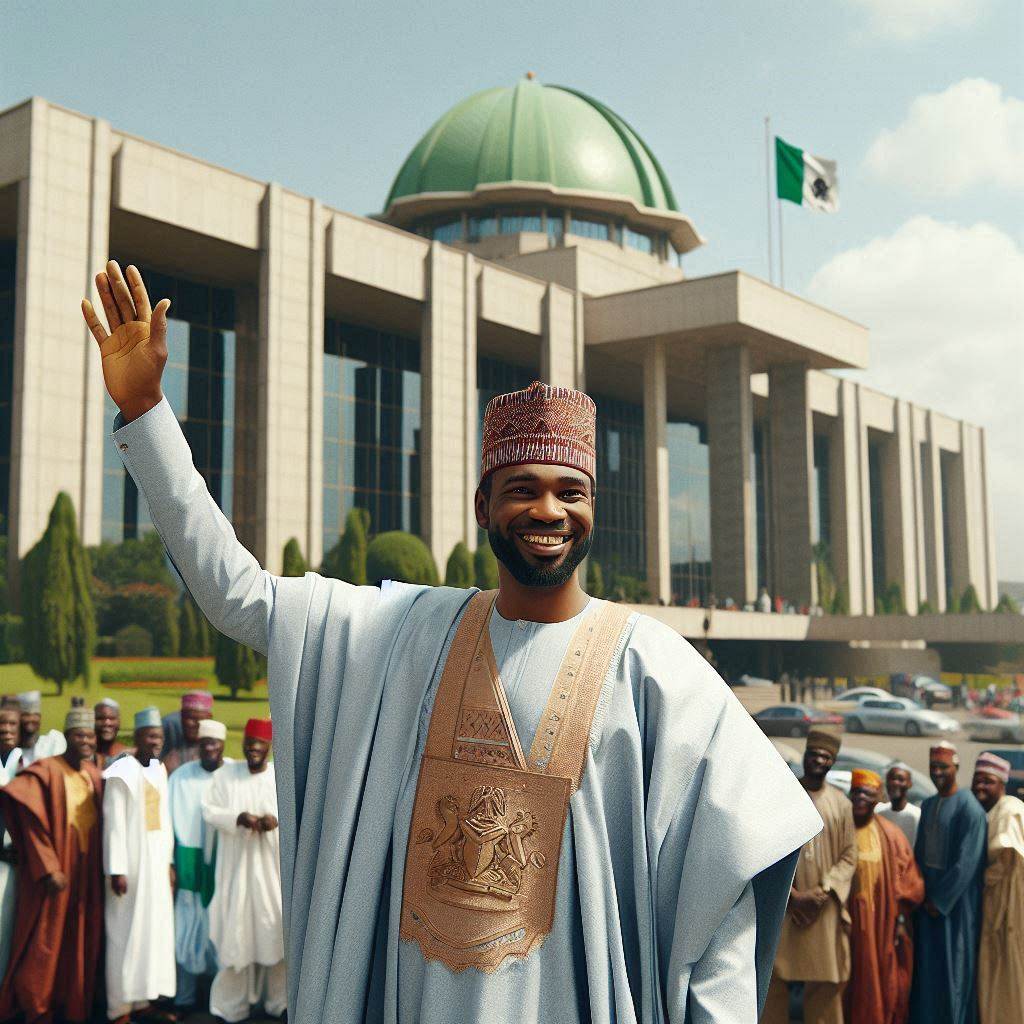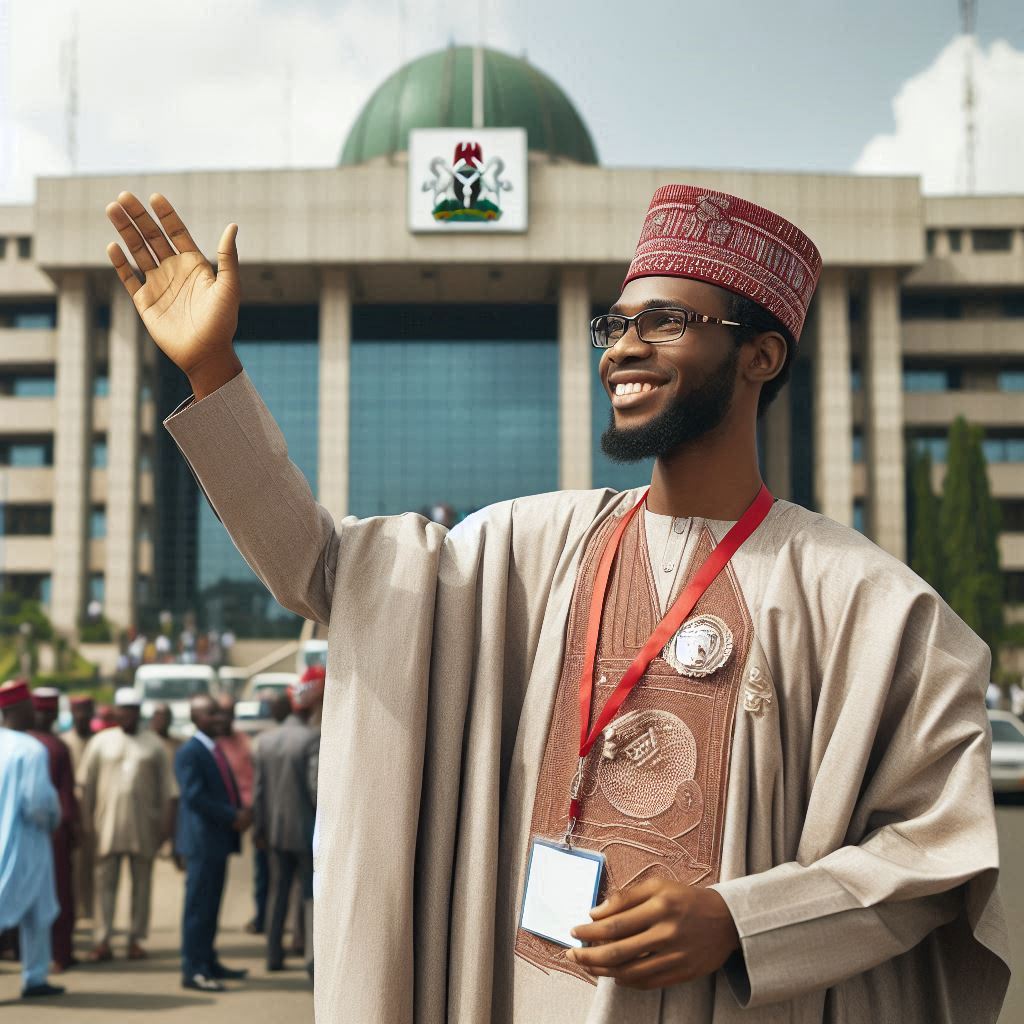Introduction
Research trends in international politics from Nigeria encompass a wide array of topics, reflecting the country’s growing influence and interest in global affairs.
Scholars and researchers delve into various themes, ranging from diplomatic relations and regional dynamics to global governance structures and security challenges.
This vibrant research landscape offers valuable contributions to the field, providing nuanced perspectives and innovative solutions to complex global issues.
Nigerian scholars bring unique insights rooted in the country’s rich history, cultural diversity, and geopolitical position, enriching the discourse on international politics.
Moreover, studying international politics in Nigeria holds immense importance.
It enables scholars to comprehend the intricate interplay of factors shaping global events and decision-making processes.
As a prominent African nation, Nigeria’s involvement in international affairs carries significant implications for regional stability, economic development, and diplomatic relations.
Thus, understanding international politics from a Nigerian perspective is essential for navigating the complexities of today’s interconnected world.
It equips scholars with the knowledge and analytical tools needed to contribute meaningfully to global discourse and shape Nigeria’s role on the international stage.
Historical Research Trends in International Politics in Nigeria
Research trends in international politics in Nigeria have evolved over the years, shaped by historical events, key researchers, and contributions. Understanding the historical research trends in this field is crucial for gaining insights into the current landscape.
Overview of Early Research on International Politics in Nigeria
Early research on international politics in Nigeria focused on decolonization efforts, post-independence foreign policies, and regional alliances. Scholars examined Nigeria’s role in the global arena and its impact on African geopolitics.
Researchers explored Nigeria’s relationships with colonial powers, neighboring countries, and international organizations.
They analyzed the country’s foreign policy objectives, alliances, and diplomatic strategies. Early studies laid the foundation for future research on Nigeria’s international relations.
Key Researchers and Their Contributions
Several key researchers have significantly influenced research trends in international politics in Nigeria. Dr. Chinweizu, a political scientist, explored Nigeria’s decolonization process and its impact on post-independence foreign policies.
Prof. Nwankwo, a leading expert in African geopolitics, conducted groundbreaking research on Nigeria’s role in regional alliances and African solidarity movements. His work provided valuable insights into Nigeria’s foreign policy decisions and their implications for the continent.
Dr. Adebayo, a renowned scholar in international relations, focused on Nigeria’s relations with global superpowers and the implications for its diplomatic engagements. His research shed light on Nigeria’s evolving role in the international community.
Influence of Historical Events on Research Trends
Historical events such as the Nigerian Civil War, military coups, and democratic transitions have influenced research trends in international politics in Nigeria. Scholars have examined the impact of these events on Nigeria’s foreign policy decisions and diplomatic relations.
The Nigerian Civil War, for instance, shaped discussions on conflict resolution, peacekeeping efforts, and regional stability. Researchers analyzed Nigeria’s role in mediating conflicts within the continent and its contributions to peacekeeping missions.
Military coups and democratic transitions have also impacted research trends, with scholars studying the implications of political instability on Nigeria’s international relations.
The transition to democracy in 1999, for example, led to a renewed focus on democratic governance and human rights in Nigeria’s foreign policy agenda.
Basically, historical research trends in international politics in Nigeria have been shaped by early studies, key researchers, and historical events.
Understanding these trends is essential for comprehending Nigeria’s current position in the global arena and predicting future developments in its international relations.
Read: Communication Arts: Balancing Theory and Practice
Current Research Topics in International Politics in Nigeria
Research trends in international politics in Nigeria have evolved over the years. Scholars are constantly exploring various facets of global politics to gain a deeper understanding of Nigeria’s role in the international community.
Popular research topics among scholars in Nigeria
- The Role of Nigeria in Conflict Resolution in West Africa
- Nigeria’s Foreign Policy and Its Impact on Regional Stability
- China’s Influence in Nigeria’s Foreign Relations
- Climate Change and its Implications for Nigeria’s Diplomacy
- The Impact of Global Terrorism on Nigeria’s National Security
Areas of focus, such as conflict resolution, international relations, etc
Scholars in Nigeria are particularly interested in studying conflict resolution mechanisms, given the country’s history of internal conflicts. They also delve into international relations to analyze Nigeria’s interactions with other countries and organizations.
Impact of globalization on research trends
Globalization has significantly influenced research trends in international politics in Nigeria.
Scholars now examine how Nigeria’s integration into the global economy has shaped its foreign policy and national security strategy. They also explore how globalization has impacted Nigeria’s cultural diplomacy and soft power initiatives.
Basically, research trends in international politics in Nigeria are diverse and dynamic, reflecting the country’s evolving role in the global arena. Scholars continue to explore new avenues of research to contribute to the broader discourse on international relations and diplomacy.
Read: Introduction to African and Asian Studies in Nigeria
Methodologies Used in Research on International Politics in Nigeria
Scholars in Nigeria employ various methodologies in researching international politics. Common approaches include qualitative and quantitative methods.
These methodologies enable researchers to analyze complex international phenomena from different perspectives.
Common Research Methodologies Employed by Nigerian Scholars
- Qualitative Methods: Researchers conduct in-depth interviews, case studies, and content analysis to explore nuanced aspects of international politics.
- Quantitative Methods: Scholars use statistical analysis, surveys, and quantitative data to examine trends and patterns in international relations.
Comparison with International Research Methodologies
While Nigerian scholars utilize similar methodologies as their international counterparts, they may face unique challenges.
Limited access to resources, including data and research facilities, can constrain research efforts. Additionally, cultural and linguistic differences may affect the applicability of certain research methods in the Nigerian context.
Challenges Faced in Conducting Research in Nigeria
- Limited Resources: Nigerian researchers often encounter challenges in accessing reliable data, academic literature, and research funding.
- Infrastructure: Inadequate research infrastructure, including libraries, laboratories, and internet connectivity, hinders research progress.
- Bureaucratic Hurdles: Cumbersome administrative procedures and bureaucratic red tape can delay research projects and approvals.
- Security Concerns: Insecurity in certain regions of Nigeria may pose safety risks for researchers, limiting fieldwork opportunities.
Despite these challenges, Nigerian scholars demonstrate resilience and creativity in navigating research obstacles.
Collaborative efforts, interdisciplinary approaches, and innovative solutions are essential for overcoming these challenges and advancing research on international politics in Nigeria.
Read: Famous Nigerian Alumni of Communication Arts Programs

Collaboration and Partnerships in Research on International Politics
Collaborative research projects between Nigerian and foreign scholars
Collaboration and partnerships play a crucial role in driving research trends in international politics from Nigeria.
By working together, Nigerian researchers can benefit from the expertise and resources of international scholars, leading to groundbreaking discoveries and a deeper understanding of global political dynamics.
One of the key aspects of collaboration in research on international politics is the partnership between Nigerian and foreign scholars.
By joining forces, researchers can bring together diverse perspectives, methodologies, and data sources to tackle complex issues on a global scale.
This collaboration often results in innovative solutions and new insights that would not have been possible with individual efforts.
Importance of partnerships in advancing research in international politics
Partnerships are essential in advancing research in international politics as they facilitate knowledge exchange, capacity-building, and the sharing of best practices.
Through partnerships, Nigerian researchers can access funding opportunities, research facilities, and international networks that can enhance the quality and impact of their work.
Collaborating with foreign scholars also opens up opportunities for joint publications, conference presentations, and research dissemination, further increasing the visibility and reach of Nigerian research in the field of international politics.
Examples of successful collaborations
Successful collaborations in research on international politics have been demonstrated through various projects and initiatives.
For example, joint research studies between Nigerian universities and international research institutions have led to the development of policy recommendations for addressing global challenges such as conflict resolution, human rights violations, and economic development.
These collaborations have also produced co-authored publications in top-tier journals, expanding the influence of Nigerian scholarship on the international stage.
In review, collaboration and partnerships are integral to driving research trends in international politics from Nigeria.
By working together with foreign scholars, Nigerian researchers can leverage diverse expertise, resources, and networks to produce impactful research that contributes to the global discourse on key political issues.
Through successful collaborations, Nigerian researchers can position themselves as influential voices in the field of international politics and make significant contributions to shaping global governance and diplomacy.
Read: Communication Arts: Job Prospects and Salaries
Find Out More: Career Opportunities with a Music Degree in Nigeria
See Related Content: Scholarships for Fine and Applied Art Students
Delve into the Subject: Challenges Facing Communication Studies in Nigeria
Role of Universities and Research Institutions in Promoting Research in International Politics
Universities and research institutions play a crucial role in promoting research in international politics. They serve as hubs for academic inquiry, knowledge creation, and intellectual exchange.
Contribution of Universities and Research Institutions to Research in Nigeria
- Universities offer academic programs in international relations that provide students with theoretical knowledge and research skills.
- Research institutions conduct in-depth studies on global issues, policies, and trends that impact Nigeria and the world.
- Collaboration between universities and research institutions leads to interdisciplinary research projects that offer comprehensive insights.
Availability of Resources for Research
- Universities and research institutions in Nigeria face challenges in accessing funding for research activities and projects.
- Lack of state-of-the-art facilities and technology hinders the research capabilities of academic institutions in the country.
- Limited access to international journals, databases, and research sources restricts the scope and depth of research.
Efforts to Promote Research Culture in Nigeria
- Government initiatives such as research grants and fellowships aim to support research endeavors across various disciplines, including international politics.
- Partnerships with international universities and research organizations facilitate knowledge exchange, capacity building, and collaborative research efforts.
- Seminars, conferences, and workshops on research methodology and academic writing contribute to enhancing research skills and promoting a research culture.
Essentially, universities and research institutions in Nigeria are instrumental in fostering research in international politics.
Their contributions, despite challenges, are essential for advancing knowledge, understanding global dynamics, and shaping policies in the ever-changing geopolitical landscape.
Read: Internship Opportunities for Communication Arts Students
Delve into the Subject: Nigerian Languages: Historical Evolution and Changes
Discover More: Career Opportunities with a Music Degree in Nigeria
Emerging Trends and Future Directions in Research on International Politics in Nigeria
New areas of research interest
As the field of international politics continues to evolve, researchers in Nigeria are exploring new areas of interest.
These include studies on the impact of globalization on Nigerian foreign policy, the role of non-state actors in international relations, and the effects of climate change on global security.
Potential impact of global events on research trends
Global events such as the rise of populist leaders, the ongoing refugee crises, and the growing influence of China in Africa are shaping research trends in international politics in Nigeria.
Researchers are now focusing on how these events impact Nigeria’s foreign policy decisions, its relations with other countries, and its position in the global community.
Challenges and opportunities for future research
One of the main challenges for future research in international politics in Nigeria is access to data and resources.
Transform Your Career with Expert Guidance
Get personalized mentorship consulting that’s tailored to your unique path. Our expert advice is actionable and exclusive.
Get StartedResearchers often face difficulties in collecting reliable data on international events and acquiring funding for their studies.
However, there are also opportunities for growth in the field. Collaborations with international partners, increased government support for research, and the use of technology for data collection and analysis are all potential avenues for future research in Nigeria.
Ultimately, the research trends in international politics in Nigeria are constantly evolving, influenced by global events and the changing dynamics of the international system.
As researchers continue to explore new areas of interest and overcome challenges, the field is set to expand and deepen in the years to come.
Uncover the Details: Research Opportunities in Communication Arts Field
Conclusion
In reflecting on the research trends in international politics from Nigeria, it becomes evident that the country’s scholarly contributions are both diverse and impactful.
From analyzing regional dynamics to exploring global governance structures, Nigerian researchers have made significant strides in advancing our understanding of international affairs.
Recapping the key points discussed in this blog post, it’s clear that Nigerian scholars play a vital role in shaping the discourse on global politics.
Their insights, rooted in Nigeria’s unique historical, cultural, and geopolitical context, offer valuable perspectives that enrich the broader field of international relations.
However, this is not the end of the journey.
There is a pressing need for scholars to continue their research endeavors in international politics.
By delving deeper into emerging issues, exploring new methodologies, and engaging in interdisciplinary collaborations, Nigerian researchers can further contribute to the advancement of knowledge in this field.
Moreover, it’s essential for scholars to keep abreast of research trends in international politics.
As the global landscape evolves rapidly, staying informed and adaptive is crucial for producing relevant and impactful research.
By remaining proactive and innovative in their scholarly pursuits, Nigerian researchers can maintain their position at the forefront of international political discourse.




